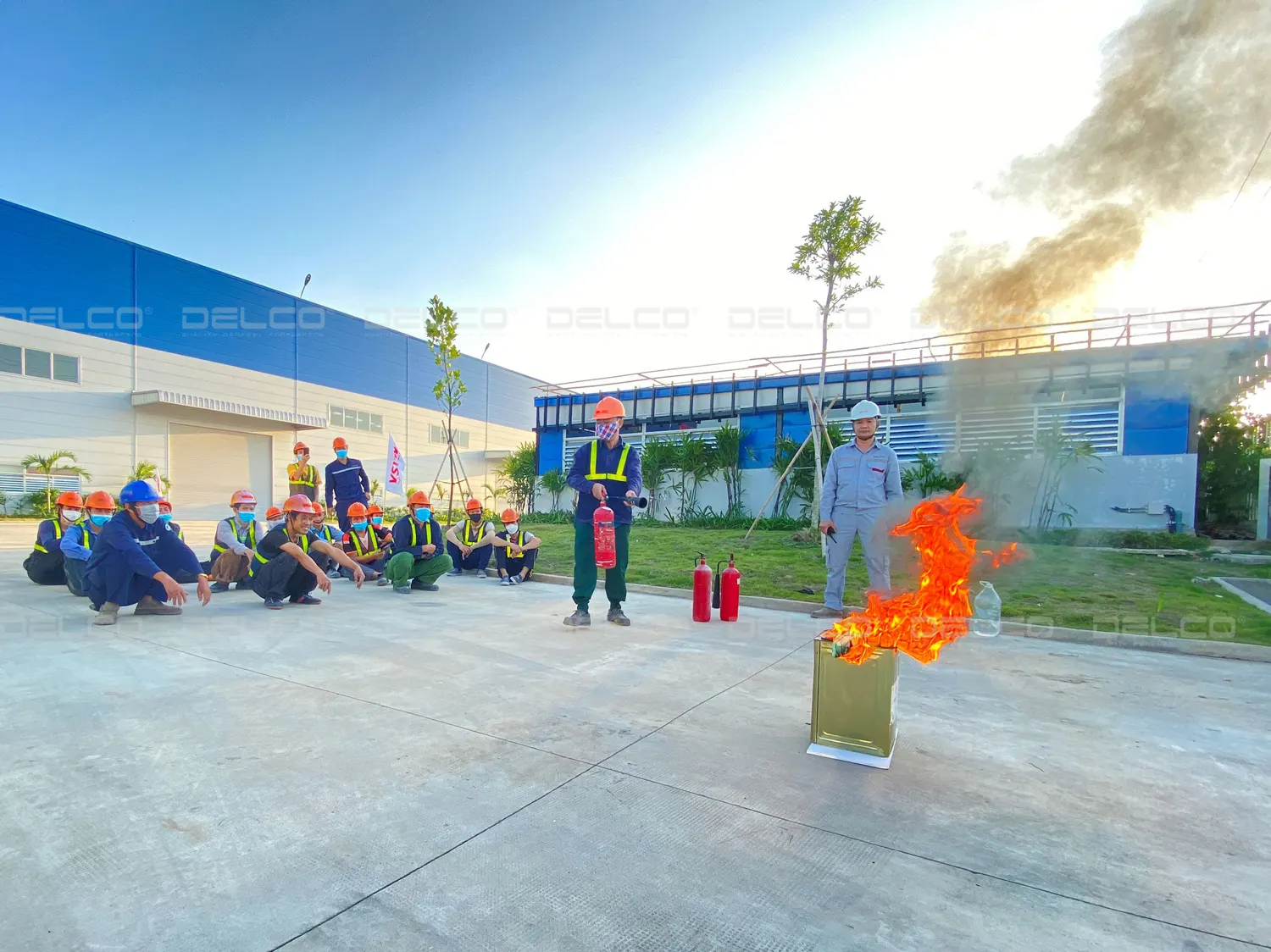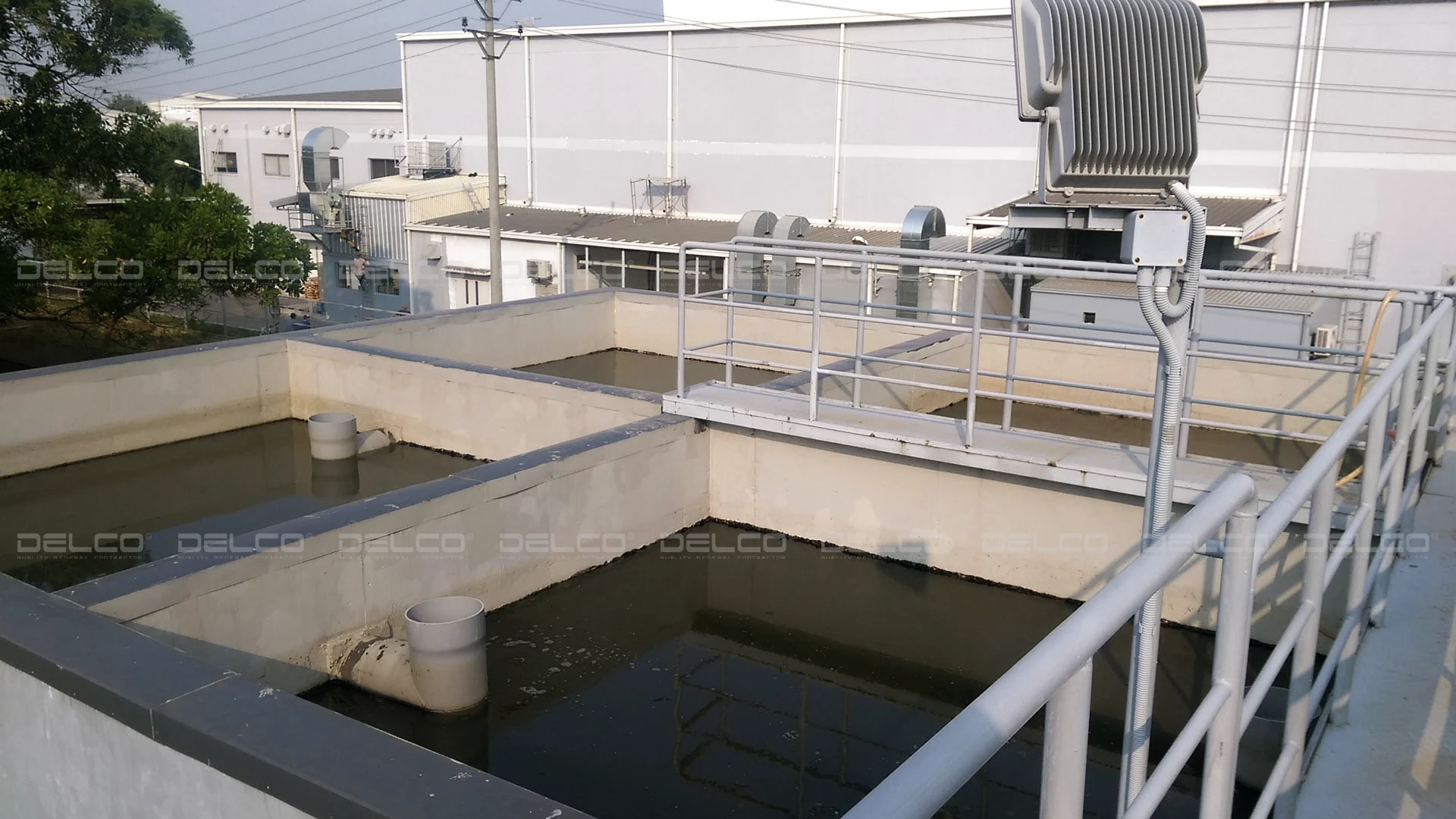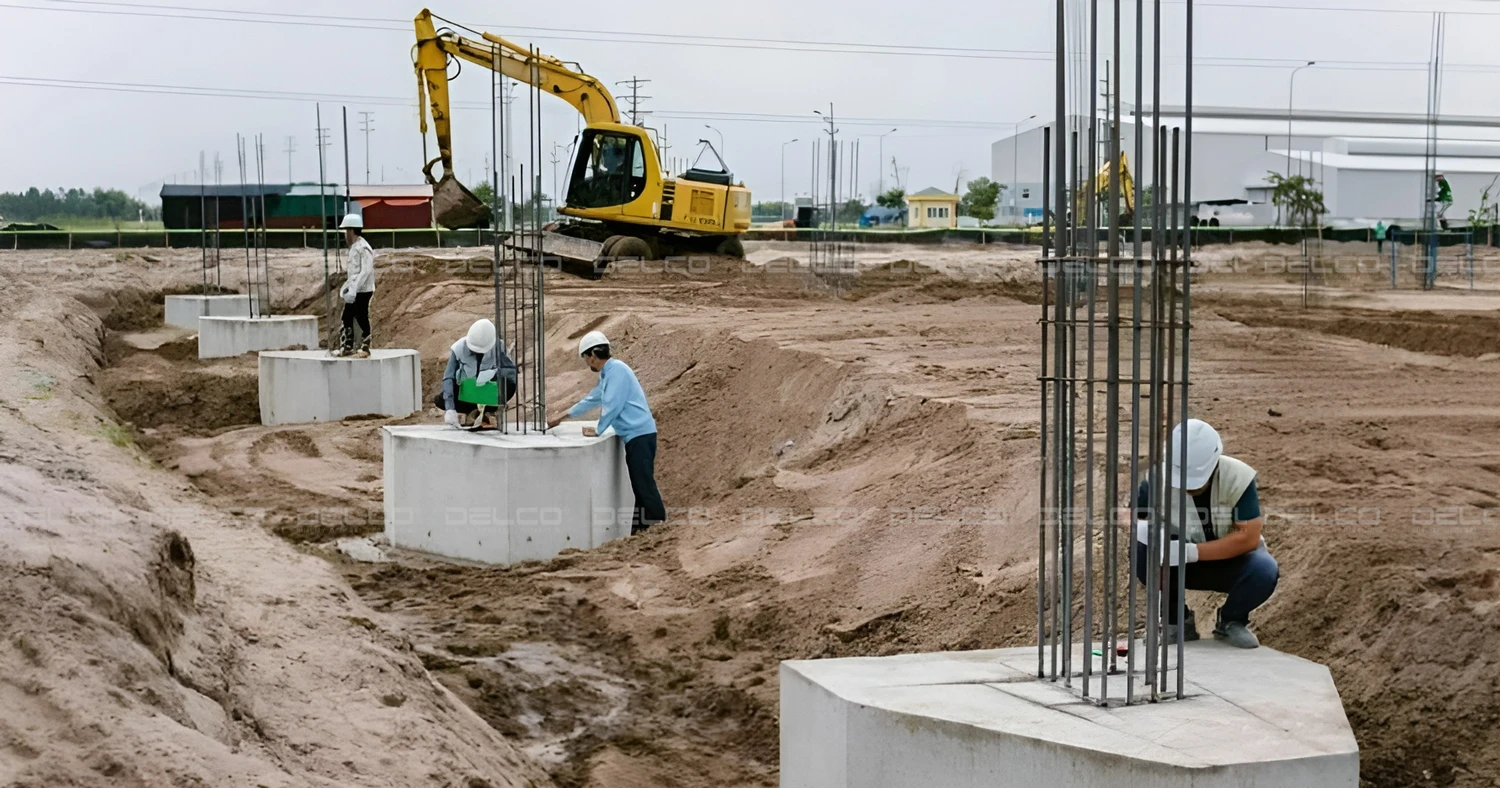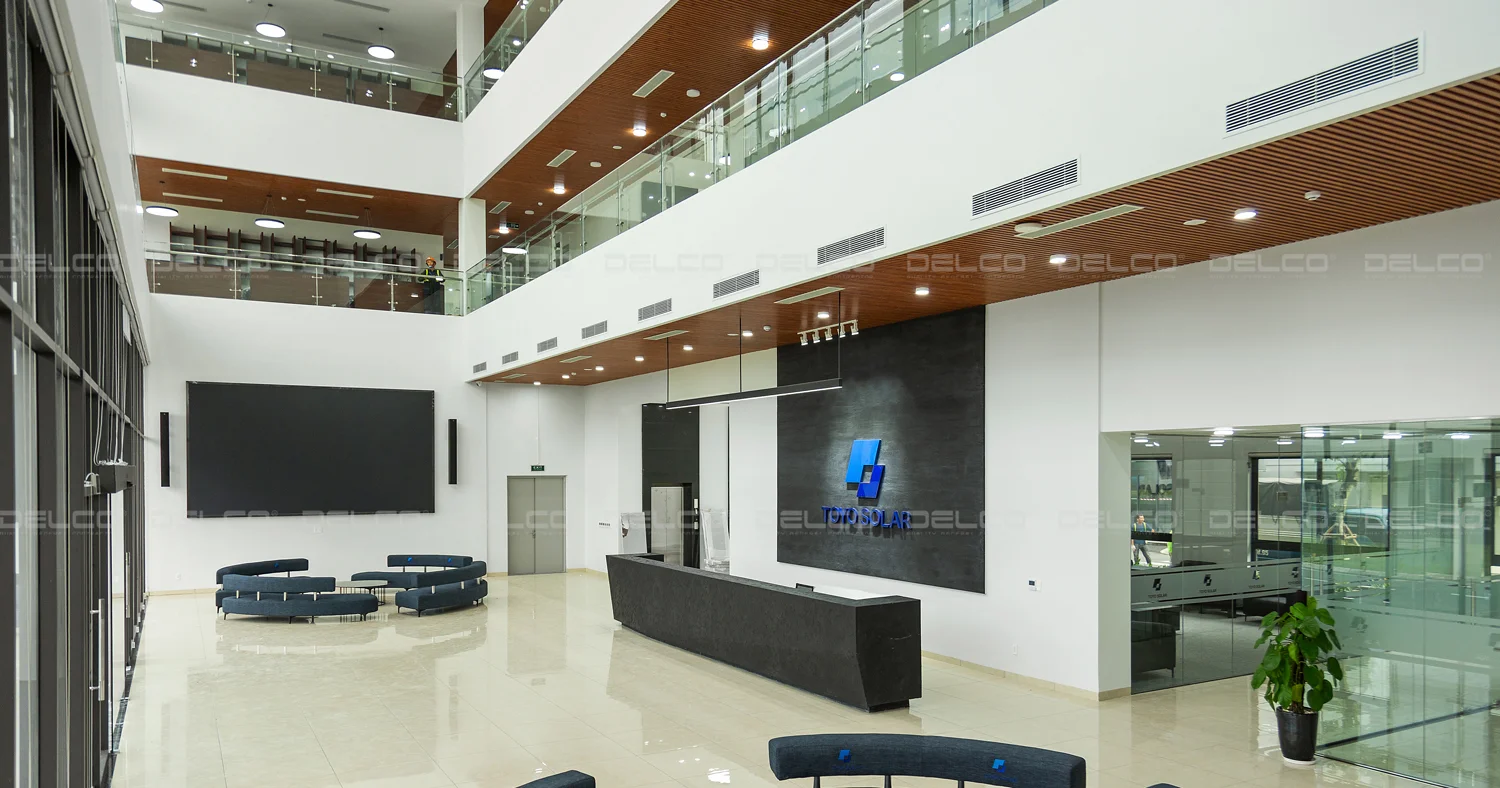Smart factories with production lines applying AI, IoT, and Robot technologies, etc., are gradually popular and become an inevitable trend in the industry. It is one of the prerequisites to help businesses maintain and develop in the 4.0 era.
Overview of Smart Factory
A smart factory is a digital manufacturing factory equipped with automated equipment to optimize processes. Production activities at smart factories are supported by many technologies such as IoT, AI, Big Data, robotics applications, machine learning, etc.
Smart factory systems can connect and process information continuously, accurately, and have the ability to support people in making decisions or automatically perform work in the factory, helping businesses increase productivity, and effectively optimize time and cost.

DELCO designs a smart factory system that combines monitoring and adjusting equipment operation, helping to save fuel and power consumption, etc., at the sports protective gear factory, Yen Binh, Thai Nguyen Industrial Park
To encourage businesses to develop following the trend of smart factories and smart manufacturing, the Government has made many efforts to perfect the legal corridor, create conditions to attract investment in digital transformation, and introduce many projects and cooperation programs with multinational corporations, etc. With many privileges in building smart factories, Vietnam has attracted many large businesses worldwide such as LG, General Electric, Samsung, etc.
Benefits of smart factories
Reduce production time and costs
Production processes at smart factories are more optimized than in traditional factories. The application of IoT allows for collecting data from machinery and equipment in real-time, manufacturers can control the devices remotely without direct supervision. AI and robot technology can replace humans to do repetitive tasks automatically and accurately, helping businesses minimize human resources and labor costs.
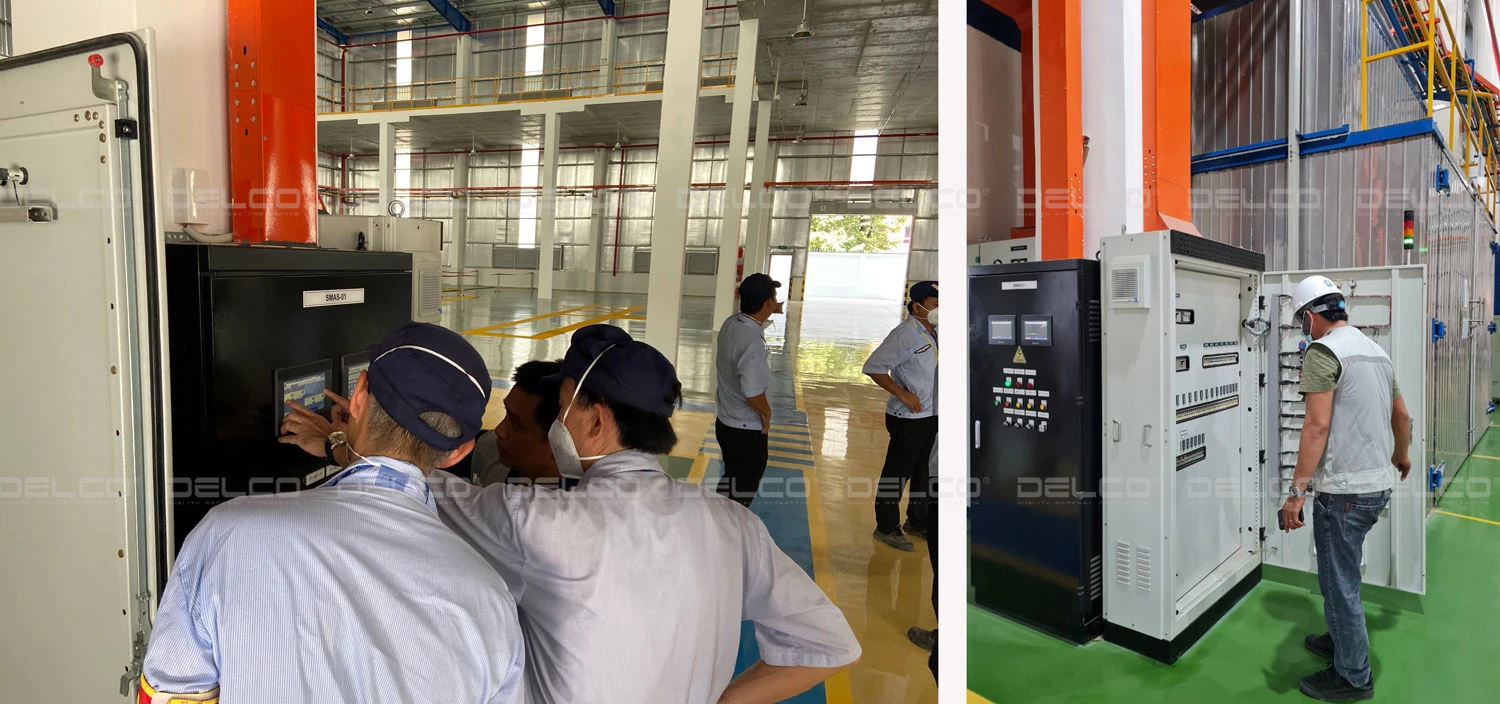
The Vietnam GS Battery Factory – one of the pioneers in building smart factory infrastructure in Vietnam, with Delco as the general contractor for design – construction and providing smart factory solutions
In addition, AI can analyze data collected by IoT to monitor and provide warnings about the machines’ condition, helping businesses proactively come up with appropriate production, warranty and maintenance plans, thereby reducing repair costs and increasing the lifespan of machinery and equipment.
Increase productivity
Some smart factories use robots to perform repetitive tasks. The advantage of robots is that they minimize human error, increase accuracy, and do not need to rest, thereby increasing productivity. In addition, robots can also perform heavy, hazardous work, which ensures absolute safety for workers.

IoT application at DELCO FARM high-tech farm
According to research by Deloitte (USA), smart factory application helps increase productivity by 12%, factory efficiency by 11% and total output by 10%. In addition, according to economic consulting research firm Frontier Economics (UK), the application of artificial intelligence can also help increase profits by up to 38% for the manufacturing industry by 2035.
See more: Integrating IoT technology into factory management
Improve product quality
Applying AI and robots to the production line will help make production steps seamless, increase accuracy, reduce the percentage of defective products as well as minimize the amount of scrap.
Above all, AI can also prevent errors thanks to its ability to predict, monitor, and constantly report, helping businesses analyze market data and customer feedback to make optimal suggestions on product improvement.
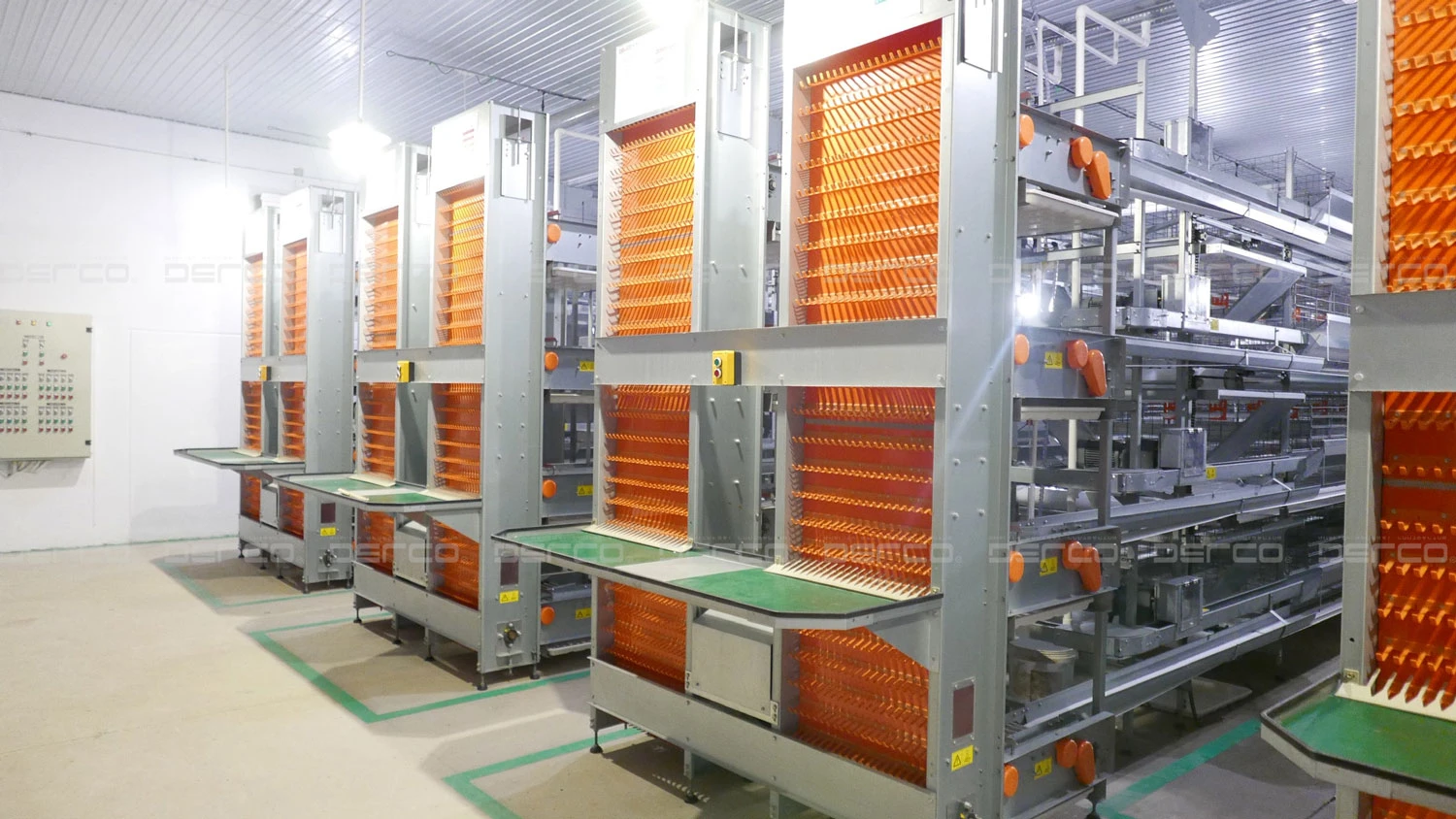
Increase competitive advantage for businesses
With smart factory solutions applying technologies such as AI, IoT, etc., the machinery system in the factory can automatically operate, monitor, measure and analyze data during the production process. Thereby saving costs, increasing productivity and production efficiency, optimizing product prices, and increasing business competitiveness in the market.
Smart factory trend in Vietnam
Use devices that integrate IoT and smart technology
By using IoT-integrated devices and smart technology such as smart air conditioners with the function of automatically adjusting the temperature to suit the space and number of employees, using automatic lighting systems, remotely turning on and off mechanical devices thanks to IoT sensors, etc., will help businesses save energy and costs effectively
Apply smart management software
The trend of using smart management software to manage warehouses and manage personnel timekeeping through devices such as fingerprint, face ID timekeepers, etc., is increasingly common. The software will help businesses manage and monitor workers, control products, and inventory more conveniently, helping save time and ensure transparent and accurate data.
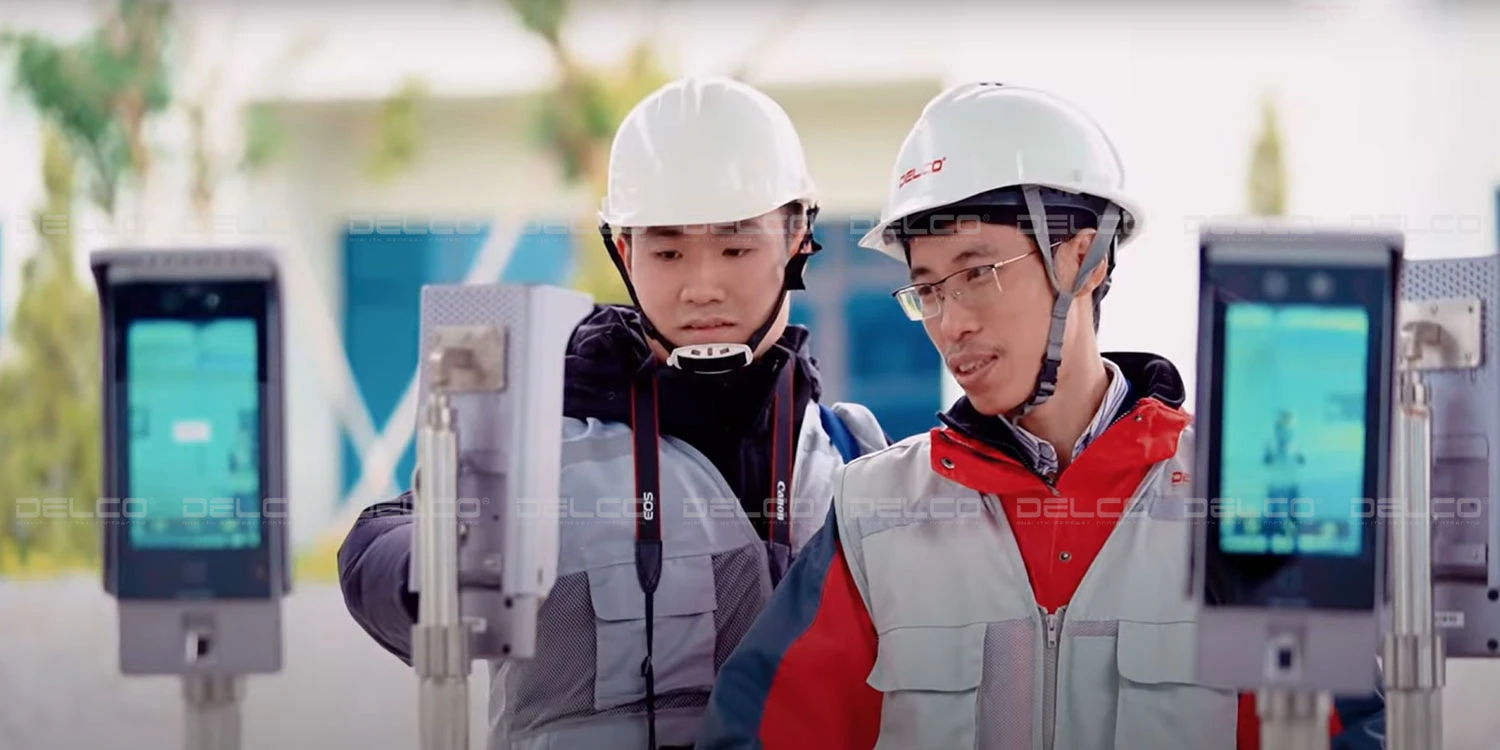
Applying FACE ID technology to manage timekeeping at Power Plus Technology factory with DELCO as the Design – Construction general contractor
Use AI camera
AI cameras have extremely high resolution, with functions such as detecting behavior, analyzing human movements or recognizing faces to determine a person’s identity.
In addition, AI cameras also have functions such as detecting suspicious items, detecting anyone entering restricted areas, etc., and providing warnings to businesses. This helps businesses easily control all activities in the factory, ensuring absolute security.
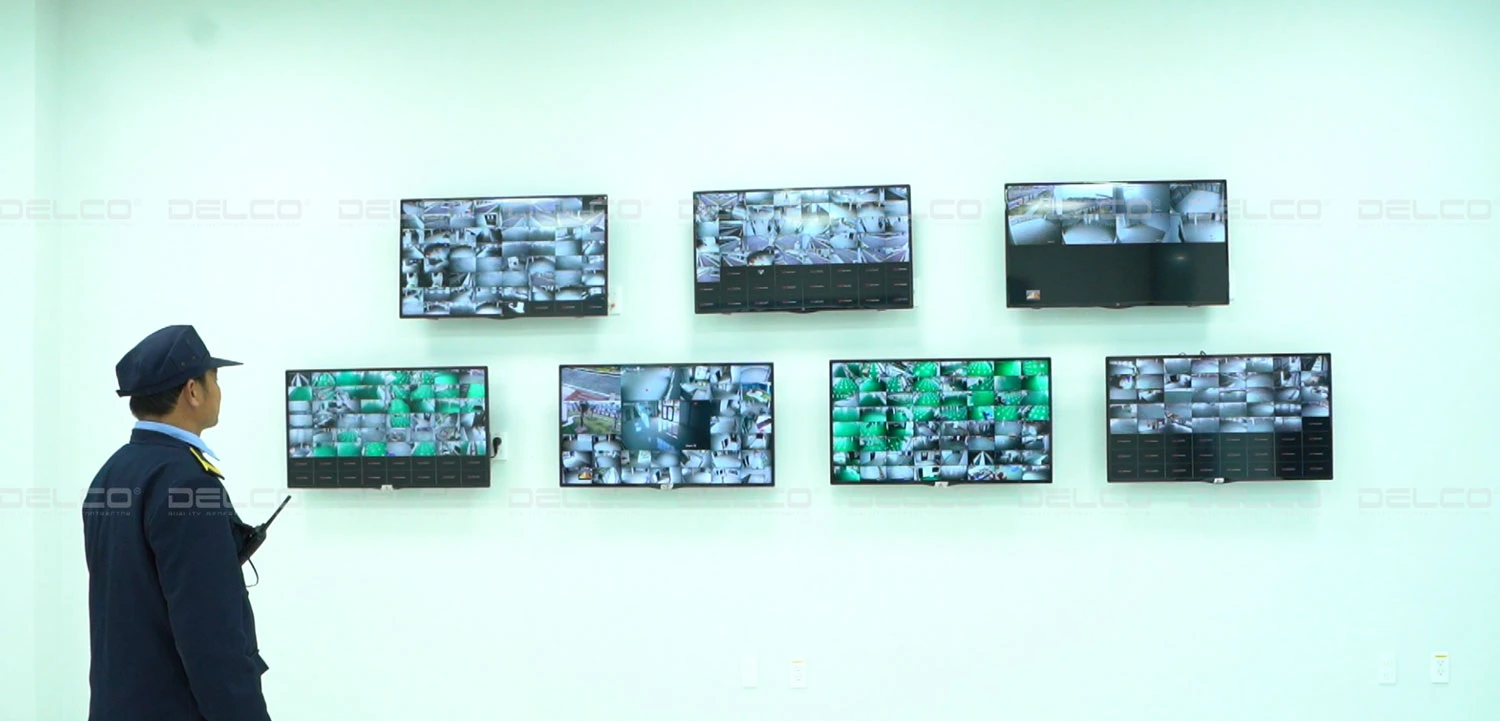
Surveillance camera system at GS Battery Factory in Binh Duong
Use AI to screen defective products
AI applications on scanner cameras to detect defective products are gradually becoming more popular in factories. This is done by AI technology collecting data on complete product models and comparing them with products on the line, detecting and promptly handling substandard products.
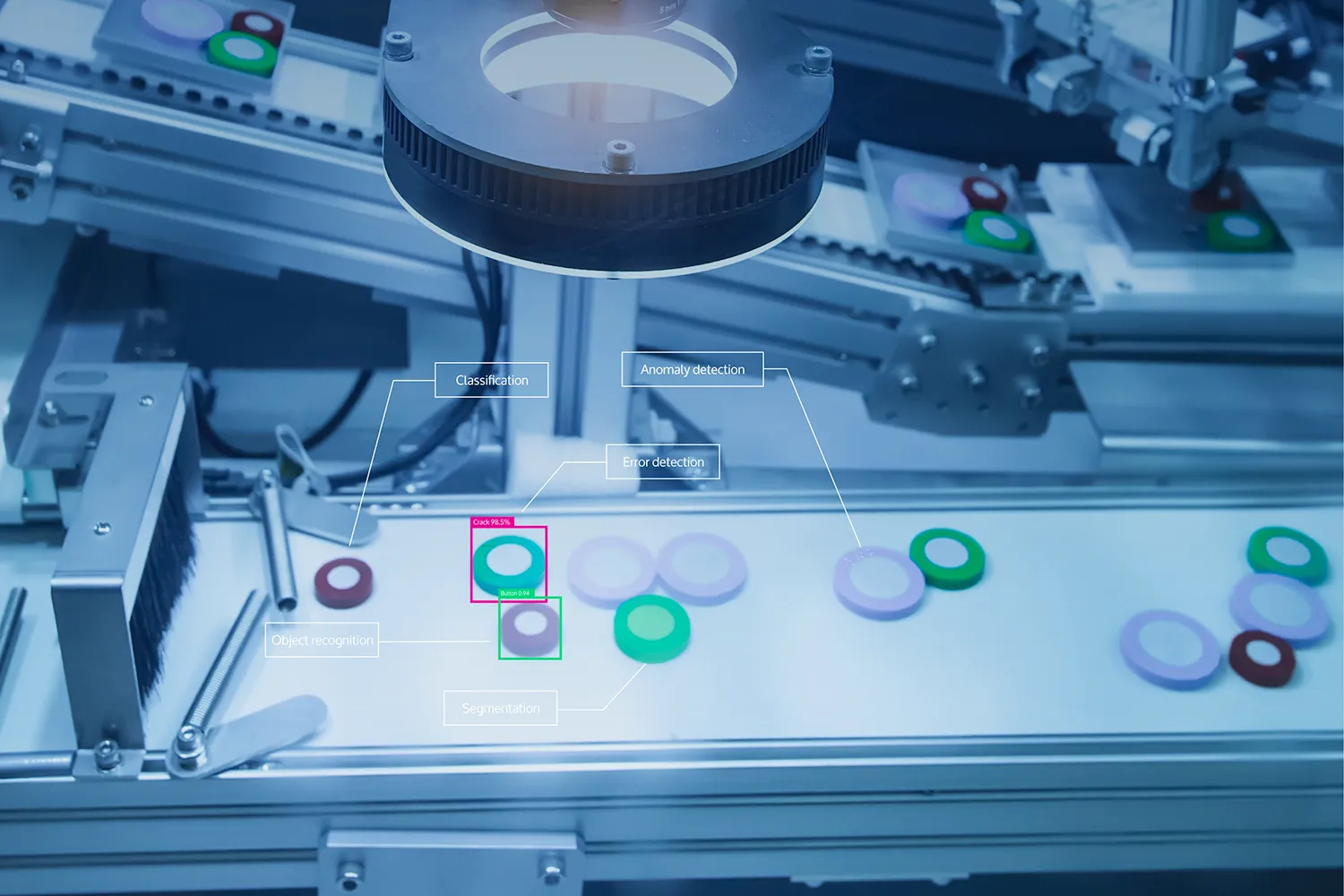
In addition, businesses can build smart production lines using AI to automatically remove defective products from the line. This saves working time effectively as well as minimizes damage caused by defective products.
See more: Typical smart factory projects and IOT applications designed by DELCO
See more: Green Building Materials – an inevitable trend in the construction industry in 2024


